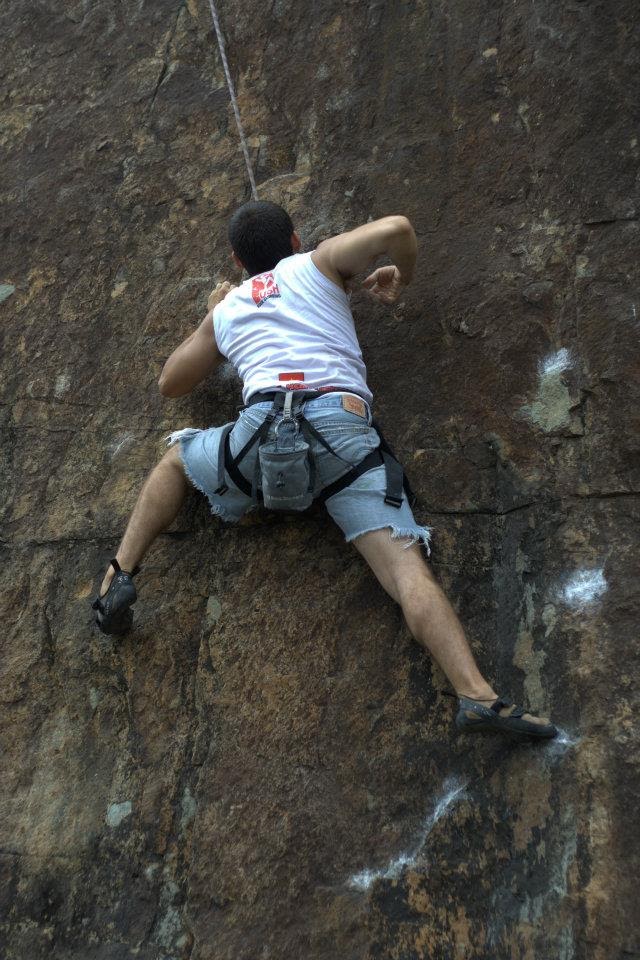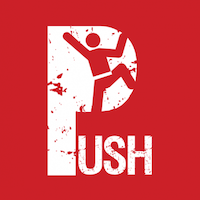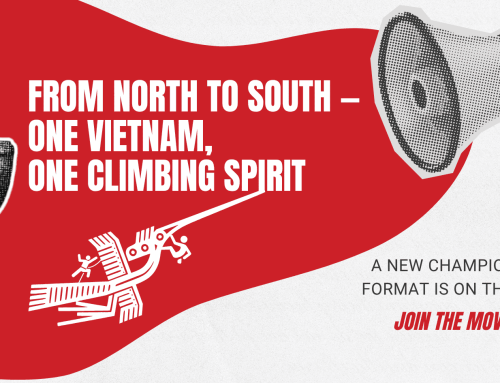“Self-transcendence gives us joy in boundless measure. When we transcend ourselves, we do not compete with others. We do not compete with the rest of the world, but at every moment we compete with ourselves. We compete only with our previous achievements. And each time we surpass our previous achievements, we get joy.”
– Sri Chinmoy
“Because in the end, you won’t remember the time you spent working in the office or mowing your lawn. Climb that goddamn mountain.”
– Jack Kerouac



Transcendence means as many things as there are people looking for it. The idea is simple though; it comes from the Latin words trans meaning ‘beyond’ and scandare, which of course means ‘to climb’. Put ’em together and you have the idea of going beyond ordinary limitations, or as some would insist achieving a holy state beyond ordinary limitations.
Now, at Push we’re not suggesting that climbing is next to godliness. Not until the sixth or seventh beer at least.
But there’s something so elementally self-challenging about taking on the wall that sometimes we do ponder the bigger picture and the idea of transcendence.
(Tip: if you’re going to ponder the bigger picture while climbing, make sure you’re firmly clipped on belay first.)
“Human nature doesn’t change much. We strive to be better, to evolve” observes Push founder Paul Massad, “so you climb a tree, but then you want to climb a bigger tree, and then the mountain.”


Climbing is all about progression, it is literally a path to self-transcendence and it’s worth bearing in mind that the very idea of religion comes from the Latin religare – attachment.
Or clipping on, as climbers would put it.
Attachment or reattachment is more than a physical idea in climbing. For a lot of climbers it really is a reconnection either with nature if you’re climbing in the wild, or with an inner nature as we reconnect with our inner child and scramble up that tree. It’s part of the beauty of climbing and one of the reasons why many climbers, including our own instructors, often say climbing is not a sport—it’s their lives.
“When I started climbing it was in Alaska with guys who were really hippy about it”, recalls Paul. “It was all about you and the mountain. Only thing was that for some of them it was about them against the mountain, and for others it was about them becoming one with the mountain.”
“Both types were defining themselves, just in two different ways.”


So feel free to buy all the gear that makes you happy (the Push shop is open for business) but it will never be about the equipment. What has really changed though, and something certain purists are wrong to rage against, is the way that climbing is no longer for a rare elite.
“What the industry has done, with its climbing gyms and cheaper kit, is make what was only available to the precious few be available to the many. Now anyone can embark on this ship,” Paul said.
Or to put it another way, there have never been so many ways to achieve transcendence.
“Our job [in the climbing industry] is to find ways of motivating people, of letting them find and grow what they want in themselves.”
Push and those in the same industry receive people on a mission “to upgrade themselves. That’s truly our task.”
“The great outdoors is still there, but now there are spectacular climbers who have never been there–there are fully trained athletes that have never touched a real rock face in their lives–and that just wasn’t possible twenty years ago.”
“Once it was just ‘climbing’, and now it’s lead, or top rope, or bouldering, or deep water soloing. They’re all about grabbing that wall and pushing yourself, they’re all about the fear factor, discipline, and concentration, but we keep finding news ways of making people want to come and try it.”
And push themselves beyond their ordinary in the process. So come; climb that goddamn mountain – you owe it to yourself.
Được viết bởi Steve Shipside.



